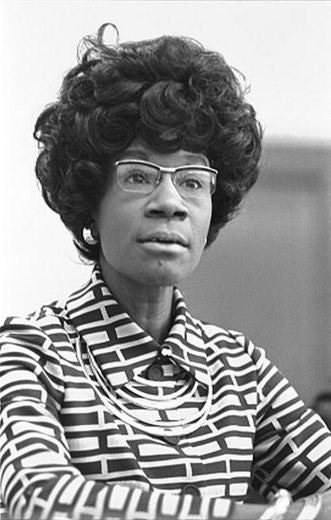
50 years ago today, Shirley Chisholm of Brooklyn shattered the glass ceiling to become the first Black woman elected to Congress. On that day, she wasn’t just running for office — she was running against history.
No one expected Shirley Chisholm to win her election. Her opponent dismissed her as a “little schoolteacher,” and told voters that the district needed “a man’s voice in Washington.” After she won, many members hoped she would recede into the background — or go along to get along. But that wasn’t Shirley Chisholm’s style.
Her campaign slogan was “unbought and unbossed.” And her colleagues soon found out that the slogan wasn’t just a catchy phrase — it was a force that drove her to oppose the Vietnam War, fight for the rights of immigrants and low-income families, and help establish the Congressional Black Caucus.
“I have no intention of just sitting quietly and observing,” Shirley Chisholm told her congressional colleagues after her election. “I intend to focus on the nation’s problems.”
Four years later, she made history once again — as the first African American and the first woman to seek the Democratic nomination for president.
I met Shirley Chisholm in 1972, when I was a student at Mills College. I was President of the Black Student Union and invited her to speak with us about her historic election to Congress. At the time, I had no idea she was running for president. When she spoke, I heard a candidate who understood my community. She understood the challenges I was facing — as a young, single mother raising two little boys — to feed my kids, pay the bills and get an affordable, high-quality education.
Congresswoman Chisholm inspired me not just to register to vote, but also to work for her presidential campaign. She taught me that the only way to fix a broken political system was by getting involved.
As she said, “You don’t make progress by sitting on the sidelines, whimpering and complaining. You make progress by implementing ideas.”
So I followed her lead, got off the sidelines, and got to work. I went on to help organize her Northern California campaign, and served as one of her delegates to the Democratic National Convention in Miami, Florida. Shirley Chisholm didn’t win the presidency. But she inspired a generation of women of color to reach for the stars — and to follow in her footsteps.
By running, Shirley Chisholm showed other Black women — myself included — that there was a path for us. And by articulating a bold, progressive vision — so unlike anything our country had even seen before — she modeled a different, more inclusive brand of leadership.
Despite Shirley Chisholm’s accomplishments, it’s still an uphill battle for Black women in politics. This year could help change that. Not only do we have a record number of women running for office, but Black women have been leading the way.
Across the country, African American women are poised to make history — in city halls, state houses, and in Congress.
But these results are not predetermined. Black women are often at a double disadvantage on the campaign trail, where they have to confront both sexism and racism. It’s an uphill battle — but it’s one that we’ll keep fighting until we achieve true equality and justice under the law.
These candidates have put their heart and souls into their races — and shown the nation just how powerful Black women truly are. Now, it’s up to all of us to show up for them.
Shirley Chisholm is often remembered for being the first. But she should also be remembered for what she accomplished once she got to Congress. She took on fights for low-income families, for hungry school kids, and for single moms. She was instrumental in creating the national school lunch program, expanding the food stamp program, and establishing the Special Supplemental Nutrition Program for Women, Infants and Children, commonly known as WIC.
50 years later, these programs are bedrocks of our communities and lifelines to some of the poorest families in America. Tomorrow, when voters go to the polls, we will have an opportunity to elect the next generation of Black women leaders. It is my hope that 50 years from now, many of those women on the ballot will join Shirley Chisholm’s name in the history books.





